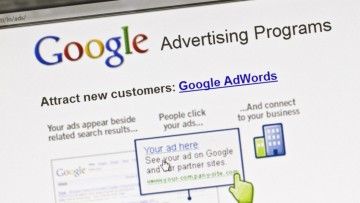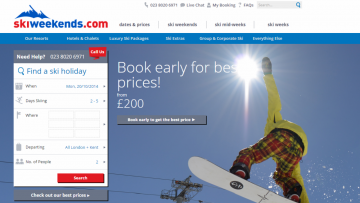1. YOUR OWN PERFECT WHISKY
China is a huge market for Scotch whisky. And what the Chinese want more than anything is the absolute top end. How better to serve this niche than by creating tailor-made whiskies?
Three years ago drinks giant Diageo opened The Johnnie Walker House in Shanghai. It is marketed as an “embassy for Scotch whisky culture”. The crowning glory is the opportunity for members and guests to have the chance to blend their own bespoke whisky. The resulting product, your very own John Walker & Sons Signature Blend, is produced under the guidance of Jim Beveridge, master blender for Johnnie Walker.
The packaging – both bottle and special presentation case – is also designed to be tailored exclusively to a client’s preference, with both decanter and bottle options. London agency Sedley Place is responsible for this aspect of personalisation.
Details on the bespoke packaging extend to a client monogram, personalisation of the bottle or decanter marked with the client’s signature, a specially designed neck charm and a certificate of authentication.
The success of the Shanghai concept has led to Diageo opening new branches in Beijing and Seoul. Each Signature Blend starts from a price tag of £80,000, which gets you 20 bottles. To date ten Signature Blends have been produced.
2. LESSONS YOU WON’T WANT TO END
Children playing football don’t need any encouragement to keep playing. They’ll stay outdoors kicking the ball until it’s too dark to see. But why don’t they behave the same way with maths homework?
The goal of personalised learning is to bring the same thrills and emotions to learning that games offer. The latest iteration in personalised learning, developed by the global IT trade body CompTIA, tracks emissions of the pleasure hormone dopamine to ensure learners are kept at the perfect mental state: excited, curious and happy.
The Chicago-based Computer Systems Institute is trialling CompTIA’s new system, called CertMaster. Questions are presented at specially timed intervals to help each student remember, and each question must be answered accurately and confidently twice before the system shows they have mastered the topic.
An algorithm looks at things which signify optimal dopamine levels, such as confidence level, based on what types of answers they choose and time they take to answer, the speed at which students master topics, and how well they memorise what they have learnt.
This approach creates a dopamine effect and a self-perpetuating positive feedback loop to keep learners’ attention and boost knowledge retention. In early trials, CertMaster claims 80 per cent knowledge retention over 12 months, compared to less than 5 per cent with traditional learning methods.
3. SHOWING ADS YOU WANT TO SEE
Google boss Eric Schmidt once defined his company’s mission as serving you just what you want online before you’ve even asked for it. The trend for personalised advertisements is making that aim feel spookily close.
The most common way to personalise adverts is to look at the users’ search history and tailor adverts to match their search criteria. For example, James Villa Holidays, which offers villa holidays across the Mediterranean and United States, uses search retargeting to follow potential holidaymakers across the web.
The process starts when a user begins researching a holiday online. They’ll type in something like “Dalmatia holiday villa”. Then James Villa Holidays learns what it can about the user from their web history. It can then place precisely the right banner ads in front of the user by bidding, in microseconds, for web real estate. The firm uses an automated system supplied by search retargeting specialist Captify. The result?
“Customers are incredibly receptive to our personalised digital ads,” says Sally Pemble of James Villa Holidays. “During a recent campaign we doubled the click-through rate compared with other digital campaigns we’ve run and increased the conversion rate by around 60 per cent.”
4. NO MORE CANNON FODDER
Computer games tend to be standard experiences. If you play Angry Birds or Portal 2, it is the same no matter whether you are an 8 year old or a middle-aged hardcore gamer. This is changing. The new generation of games adapt to each user to ensure everyone gets the game they want.
One of the biggest personalisation consultancies is Edinburgh-based deltaDNA. It collects user data to help designers tailor games to different demographics. For example, Heroes & Generals, by games house Reto-Moto, is an online Second World War shooter game with 3.2 million registered users. With multiple game modes accessible across multiple platforms, players can choose to play as either heroes fighting on the battlefields or as generals devising the grand strategy of a massive war with thousands of concurrent players.
Using the deltaDNA platform, Reto-Moto is able to segment players based on their playing style and ability, ensuring the playing experience is shaped for different types of players. Novice players can be nurtured; expert players can be challenged, especially in the early stages of the game when churn is highest as being cannon fodder isn’t fun for anyone. The result is happy heroes and happy generals, no matter what level of competence they play with.
5. PERSONALISED WEBSITES
Showing the same website to all visitors is a lost opportunity. Ideally your website ought to optimise for every individual visitor, showing them precisely what they want to see.
SkiWeekends.com is a ski holiday booking website covering 24 ski resorts, serviced by 17 UK airports. The travel agent behind it has 30 years’ experience and is at the cutting edge of personalising the online experience.
The site uses a service called Sitecore Experience Platform, which gathers all available data to personalise what each visitor sees. It takes into account factors such as search terms and the visitor’s location, using their IP (internet protocol) address, to tailor site specifics such as destinations, transport options, promotions and incentives.
Since the start of the 2013-14 ski season, sales revenue at SkiWeekends.com has increased by 16 per cent year on year, thanks to a 55 per cent rise in conversion of site visits to its online booking pages.
The site has attracted 15 per cent more unique visits, increasing to almost 200,000 in six months. But, more significantly, the improved usability and personalisation means 32 per cent more visitors are finding their ideal ski holiday – all done by a firm with just six full-time members of staff.
1. YOUR OWN PERFECT WHISKY

2. LESSONS YOU WON’T WANT TO END




